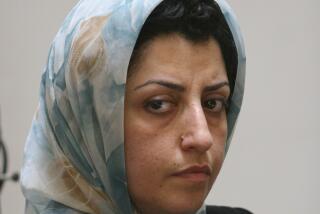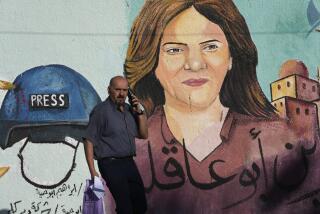The Nobel Peace Prize recognizes the growing dangers faced by journalists
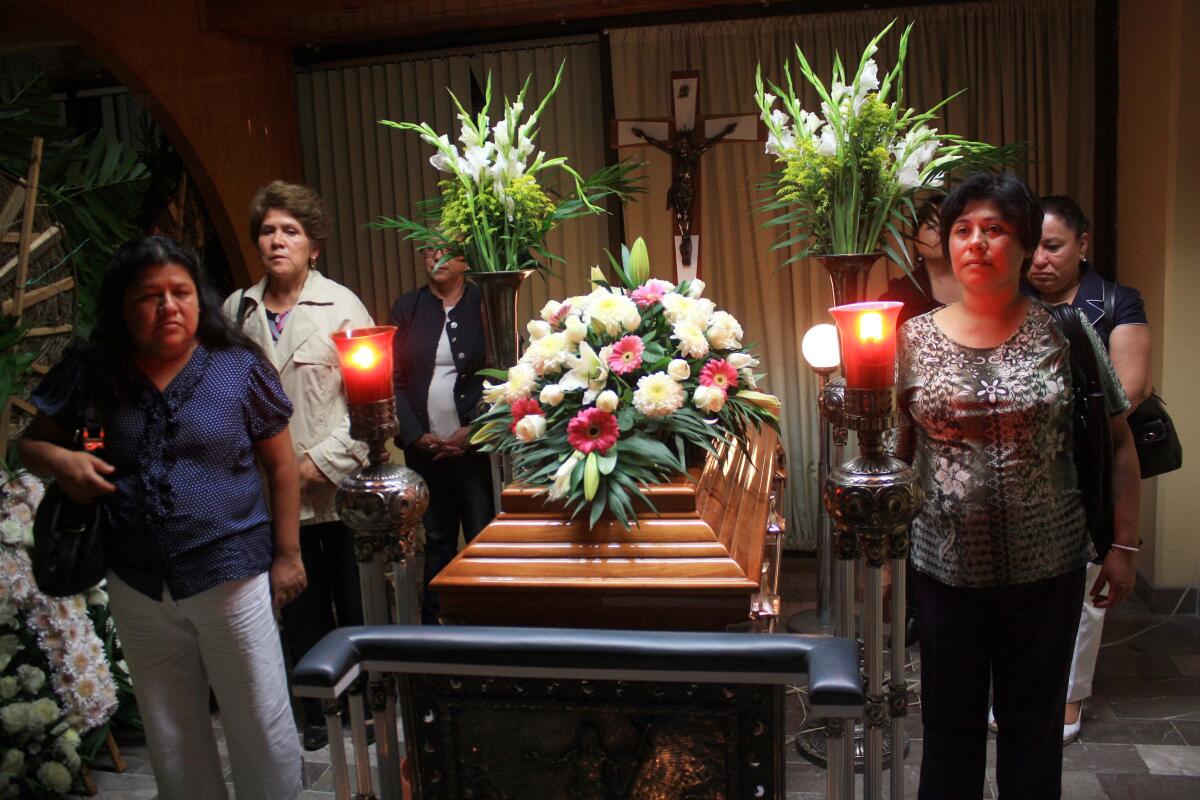
Mexican investigative reporter Regina Martínez fearlessly dedicated herself to exposing wrongdoing by government officials in her home state of Veracruz.
That came to an end in 2012, when she was strangled to death in her house. The government says she was killed in a robbery and sent the alleged assailant to prison.
But Martínez’s colleagues never believed that story, maintaining that she had been targeted because of her journalism.
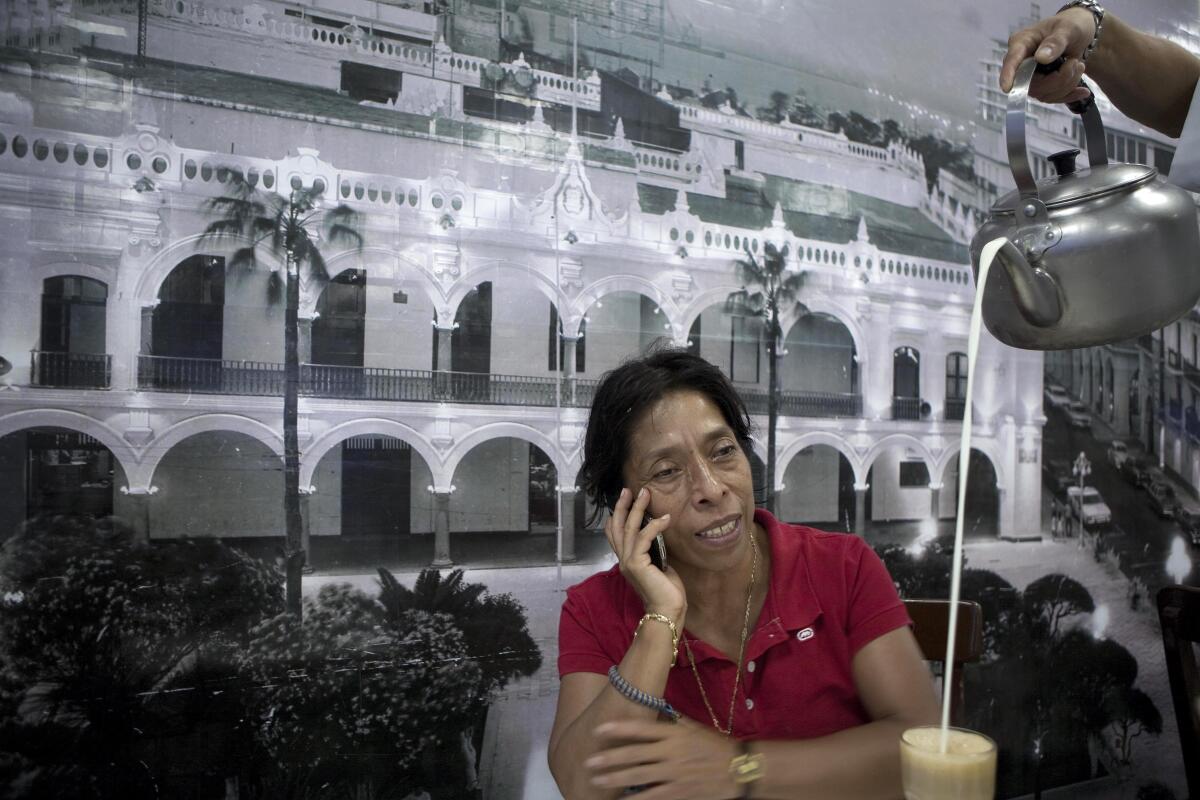
To the people who worked with Martínez and with scores of other journalists who have been killed in Mexico, the announcement Friday that the Nobel Peace Prize had been awarded to two journalists — from the Philippines and Russia — felt like an important acknowledgment of those deaths.
“I completely identify with this award,” said Jorge Carrasco, editor of the newsweekly Proceso, where Martínez had been a correspondent. “It’s a recognition of the journalistic profession in the whole world.”
The Nobel committee awarded the peace prize to Maria Ressa of the Philippines and Dmitry Muratov of Russia, applauding “their efforts to safeguard freedom of expression, which is a precondition for democracy and lasting peace.”
Both have exposed secrets of those in power and have faced threats for their work, a common experience for journalists as more and more countries see the rise of authoritarian leaders who are openly hostile toward a free press.

“They are representatives of all journalists who stand up for this idea in a world in which democracy and freedom of the press face increasingly adverse conditions,” the Nobel committee said.
That message resonated in newsrooms worldwide.
The award “recognizes the contribution of journalism to bring about a better society through the search for truths that are uncomfortable for the powerful,” tweeted Jaime Abello Banfi, director of the Gabo Foundation, which is dedicated to improving journalism in Spanish- and Portuguese-speaking nations.
The prize rewards “independent journalists the world over,” he said.
Both winners “continuously defy censorship and repression to report the news, and have led the way for others to do the same,” Joel Simon, executive director of the Committee to Protect Journalists, said in a statement. “The Nobel Peace Prize is a powerful recognition of their tireless work, and that of journalists all around the world. Their struggle is our struggle.”
In its latest annual survey, his organization reported that as of last December at least 274 journalists worldwide were jailed in relation to their work. China was the worst jailer of journalists, followed by Turkey, Egypt and Saudi Arabia.
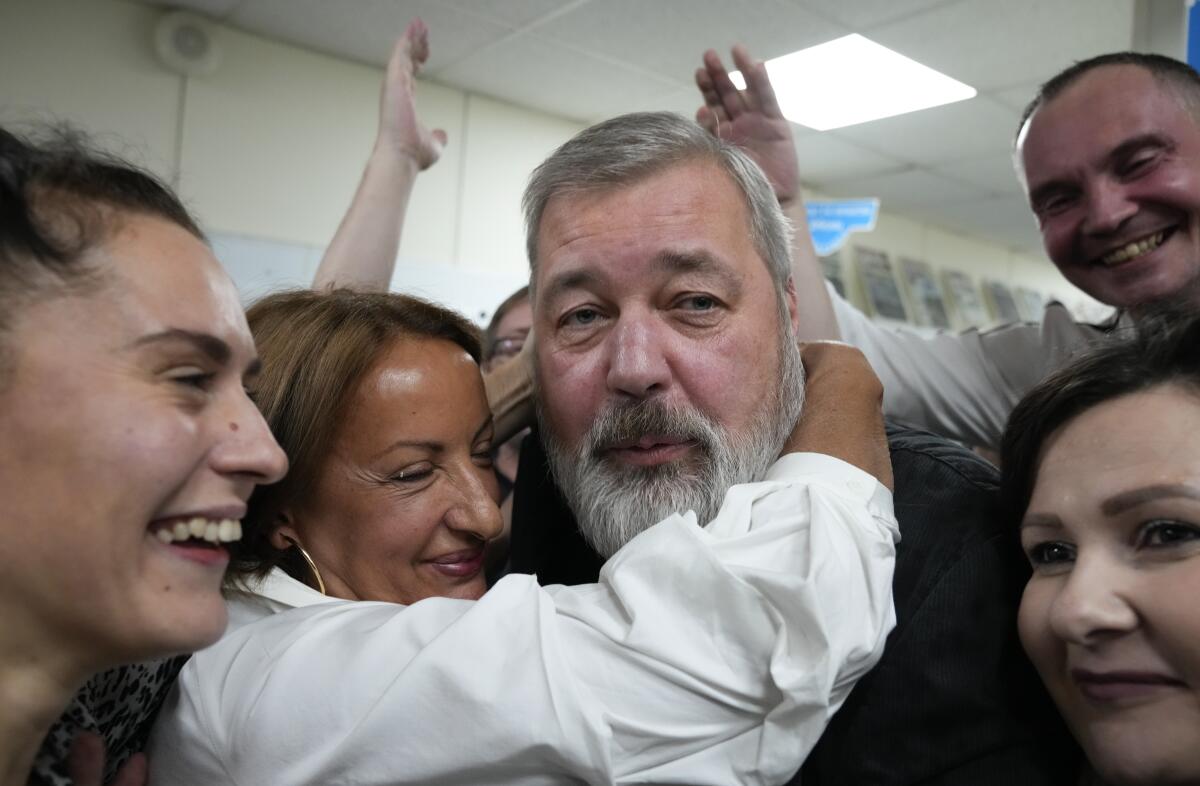
In Mexico, at least 130 journalists have been killing over the last three decades — a figure topped only by Iraq, Syria and the Philippines. The five killed so far in 2021 are more than in any other country.
Despite the risks, Mexican reporters take on corrupt politicians and gangsters in pursuit of some proximity of the truth. It is often a thankless grind, and the pay is generally minimal.
Much of the violence in Mexico emanates from organized crime and politicians enmeshed in it. Many of those killed reported on links between gangs and corrupt police or lawmakers.
Most murders of journalists here remain unresolved. The relatively few arrests typically involve the apprehensions of low-level hit men — not the crime bosses or corrupt officials who order murders and pay the killers.
This summer, an online video — purportedly from the Jalisco New Generation cartel, among Mexico’s most powerful — threatened a well-known television news anchor, Azucena Uresti. The cartel expressed dissatisfaction with her coverage of a cartel turf battle in western Michoacan state.
“I’ll make you eat your words, even if they accuse me of feminicide,” declared a purported mob figure in the video, supposedly repeating the message of the cartel leader, Rubén Oseguera Cervantes.
President Andrés Manuel López Obrador condemned the threat and offered protection to Uresti through a government agency that provides security to targeted journalists.
At the same time, the president frequently denounces the press as conservative, elite and in the pockets of his “adversaries” — generating criticism that he is aggravating an already hostile atmosphere.
So far in 2021, the Mexican free-press group Articulo 19 has recorded 362 “aggressions” — including physical, verbal and online threats — against Mexican journalists, or one every 12 hours, according to its director, Leopoldo Maldonado.
He said many see the Nobel as a validation of years of difficult and perilous digging and investigation.
“It’s a recognition of those in the journalistic profession who are critical of power,” Maldonado said. “And it’s an incentive that they keep on doing that work.”
It is also a sign to repressive leaders, politicians, police and others that actions against the press may not go unnoticed.
“I think this sends a very powerful message to those governments and political actors,” Maldonado said.
Still, few in Mexico are hopeful that a Nobel for two journalists in far-off nations will make any difference in what many regard as a perpetual open season on journalists.
“As a journalist in Mexico, I can’t afford to think this will make much difference,” said Victor Ortega, editor of El Salmantino news site, based in Salamanca, a gritty oil-processing hub in the violence-plagued central state of Guanajuato.
One of his reporters, Israel Vázquez Rangel, was shot dead last year while responding to the scene of a homicide.
Not long after the killing, authorities announced the arrests of two suspects — but almost a year later have provided no details about motive or who was behind the slaying.
“If you’re a journalist in this country, you risk your life,” Ortega said. “Today you are alive and in any moment they can kill you with complete impunity. ... Yes, this prize is nice news. But in truth, for journalism in Mexico, it’s basically a footnote.”
McDonnell is a Times staff writer and Sánchez a special correspondent. Special correspondents Andrés D’Alessandro in Buenos Aires and Liliana Nieto del Río in Mexico City contributed to this report.
More to Read
Start your day right
Sign up for Essential California for news, features and recommendations from the L.A. Times and beyond in your inbox six days a week.
You may occasionally receive promotional content from the Los Angeles Times.

